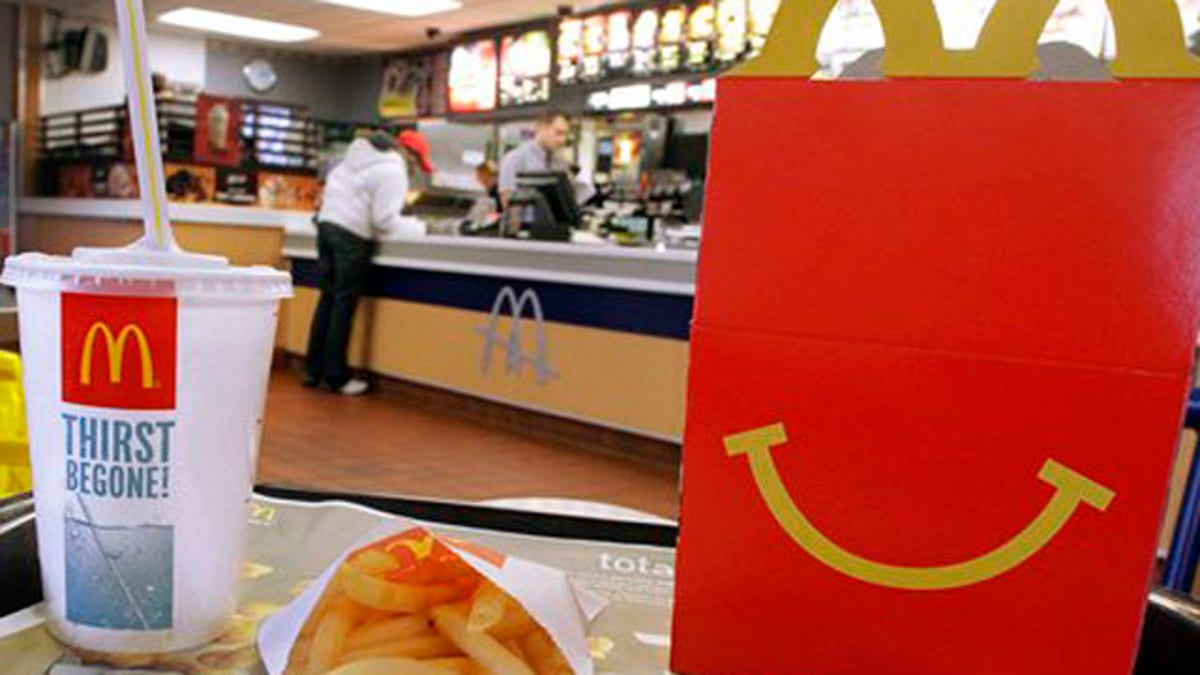
(AP)
Want a Twinkie? The government shouldn't spend any money to convince you not to eat it.
At least, that's the premise behind a bill that was just introduced in Congress. The bill, written by Rep. Scott DesJarlais, R-Tenn., would prohibit federal money from going toward ad campaigns against foodstuffs and beverages that the feds consider safe and legal.
"I don't think it's the federal government's (role) to try and regulate people's habits on products that were deemed safe by the FDA," he told FoxNews.com. "The government is reaching too far into our lives in trying to regulate personal habits."
DesJarlais introduced the bill following a flap in New York City over an anti-obesity subway poster. The ad showed a man on a chair who appeared to be missing a leg, with crutches in the background. "Portions have grown," the ad said. "So has Type 2 Diabetes, which can lead to amputations."
But as The New York Times first reported, the man in the ad actually has both legs -- and the ad agency for the New York City Health Department had simply taken a stock image of the unidentified individual and edited out one of his legs.
DesJarlais cited federal statistics that show $230 million in federal stimulus money went toward anti-obesity campaigns. The grants funded projects across the country, from Los Angeles to Boston. Roughly $15 million went to New York City.
DesJarlais claimed the subway ad was stimulus-funded. The city Health Department did not return a request for comment.
The ad campaigns are meant to curb behavior that is contributing to the chronic disease epidemic in America. According to the CDC, these diseases -- from diabetes to heart disease to cancer -- account for 70 percent of all U.S. deaths.
According to the American Diabetes Association, more than 8 percent of the U.S. population - or 26 million people -- have diabetes.
The New York City Health Department, in its latest ad campaign roll-out, pushed the message that increased portion sizes are leading to an excessive caloric intake and in turn weight gain, which increases the risk of diabetes. The subway ad, despite the controversy over the image, had a simple message -- "cut your portions, cut your risk."
An earlier New York campaign, in 2009, noted that a 20-ounce soda can contain more than 16 teaspoons of sugar.
The bill in Congress doesn't have any co-sponsors. It is, however, backed by the American Beverage Association.
ABA spokesman Christopher Gindlesperger said these ads are going "directly at our products," despite efforts by the industry to promote low- or no-calorie drinks and reduce portion size.
"Our nation's priorities should be focused on creating jobs and keeping jobs, and this taxpayer money would have been way better spent on projects that put people back to work," he said.
As for the New York ad, he said, "They Photoshopped the leg off of a man ... It's misleading, it's over-the-top."
DesJarlais argued that taxpayers should not have to "subsidize" misleading campaigns.
In a letter to colleagues, he wrote that the ads "strike at the heart of personal responsibility and, in many cases, promote a completely inaccurate and disingenuous picture of America's food and beverage producers."
He told FoxNews.com that "pro-growth job money" from the stimulus bill ended up being used to "hurt American business."
His bill specifically would bar federal money from being used for any ad campaign "against the use of a food or beverage that is lawfully marketed under the Federal Food, Drug, and Cosmetic Act."












































